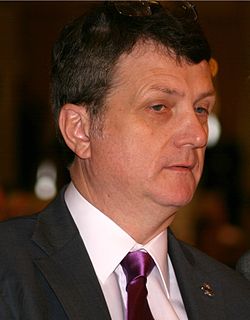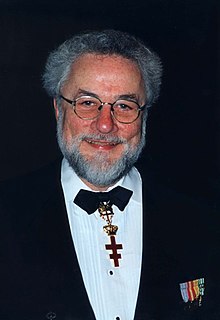A Quote by Joseph Smith, Jr.
Where has the genius of the pedistal [sic] of the laws and constitution of our boasted country fled?
Quote Topics
Related Quotes
The laws are, and ought to be, relative to the constitution, and not the constitution to the laws. A constitution is the organization of offices in a state, and determines what is to be the governing body, and what is the end of each community. But laws are not to be confounded with the principles of the constitution; they are the rules according to which the magistrates should administer the state, and proceed against offenders.
The Constitution is not a law, but it empowers the people to make laws... The Constitution tells us what shall not be a lawful tender... The legislature has ceded up to us the privilege of enacting such laws as are not inconsistent with the Constitution of the United States... The different states, and even Congress itself, have passed many laws diametrically contrary to the Constitution of the United States.
In this choice of inheritance we have given to our frame of polity the image of a relation in blood; binding up the constitution of our country with our dearest domestic ties; adopting our fundamental laws into the bosom of our family affections; keeping inseparable and cherishing with the warmth of all their combined and mutually reflected charities, our state, our hearths, our sepulchres, and our altars.
[T]he Constitution ought to be the standard of construction for the laws, and that wherever there is an evident opposition, the laws ought to give place to the Constitution. But this doctrine is not deducible from any circumstance peculiar to the plan of convention, but from the general theory of a limited Constitution.
Next came the Patent laws. These began in England in 1624; and, in this country, with the adoption of our constitution. Before then [these?], any man might instantly use what another had invented; so that the inventor had no special advantage from his own invention. The patent system changed this; secured to the inventor, for a limited time, the exclusive use of his invention; and thereby added the fuel of interest to the fire of genius, in the discovery and production of new and useful things.
For example, an author whose parents fled a war but he himself was born in the country where they fled to, and that is where he went to school and college before he wrote his first book of poetry in the language of this country - he should be labeled as: "Author whose parents fled a war but he himself was born in the country where they fled to, and that is where he went to school and college before he wrote his first book of poetry in the language of this country."
A constitution, therefore, is to a government what the laws made afterwards by that government are to a court of judicature. The court of judicature does not make the laws, neither can it alter them; it only acts in conformity to the laws made: and the government is in like manner governed by the constitution.
In the Laws it is maintained that the best constitution is made up of democracy and tyranny, which are either not constitutions at all, or are the worst of all. But they are nearer the truth who combine many forms; for the constitution is better which is made up of more numerous elements. The constitution proposed in the Laws has no element of monarchy at all; it is nothing but oligarchy and democracy, leaning rather to oligarchy.


































